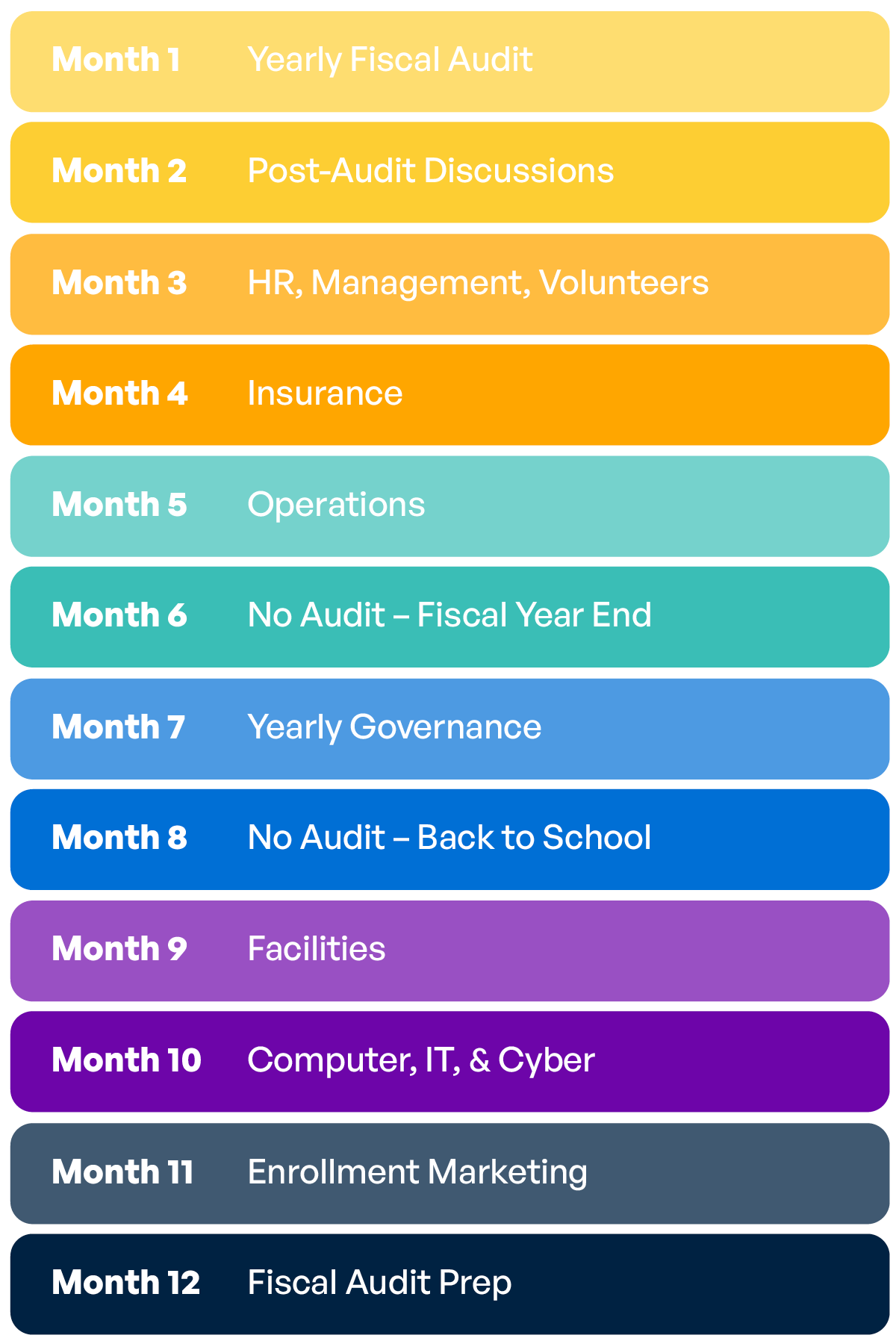The thought of an audit can feel overwhelming, especially when you’re focused on the daily demands of running and growing your school. Addressing compliance issues, evaluating internal controls, and implementing auditor recommendations can be daunting. However, breaking the process into smaller, manageable steps throughout the year can make a significant difference.
The Charter School Audits Guide: Preparing Your School for the Annual Audit provides a month-by-month breakdown to help your school prepare effectively. By dedicating time each month, you can minimize last-minute stress and ensure you’re ready when audit season arrives.
Here’s how the plan unfolds:

Month 1: Reflect and Recharge
The first month after completing your audit is all about reflection.
- Evaluate: Take a moment to review the results of the audit. What went well? What challenges emerged?
- Organize: Gather and organize audit documents from the previous year to create a clear starting point for the next cycle.
- Plan Ahead: Identify key dates and deadlines for the next audit and ensure they’re on everyone’s calendar.
This month sets the stage for moving forward and ensures your team is aligned and ready to tackle the next steps.
Month 2: Post-Audit Conversations and Strategy
February is the perfect time to focus on post-audit discussions. Use this month to dive into what worked, what didn’t, and what needs improvement.
Steps for Month 2:
- Be Proactive:
Reflect on your school’s audit experience and think critically about what steps you can take now to improve next year’s results. Early action can save significant time and stress later. - Evaluate Recommendations:
Carefully review your auditor’s suggestions. Consider:- What internal controls need to be added or strengthened?
- Are there new policies or procedures that should be implemented?
- What areas of financial management need improvement?
- Update Your Corrective Action Plan (CAP):
If your audit included findings that require a CAP, now is the time to update it. Ensure your CAP outlines clear steps and timelines for resolving any compliance issues.Note: Not all schools will have a CAP or receive one as a result of their audit. Check with your authorizer for clarification.
Why a Month-by-Month Approach Works
Breaking audit preparation into smaller, focused tasks each month helps reduce overwhelm. It allows your team to address critical areas methodically while staying on top of daily operations. Over time, these incremental efforts add up, creating a smoother, more efficient audit process.
By dedicating February to strategic discussions and actionable steps, your school can use the audit as an opportunity for growth. Thoughtful planning and proactive adjustments will not only ease future audits but also strengthen your school’s financial and operational foundation.
Take the Next Step
Dive deeper into the month-by-month plan and learn how to set your school up for audit success. Access the full guide here: The Charter School Audits Guide Preparing Your School for the Annual Audit.
